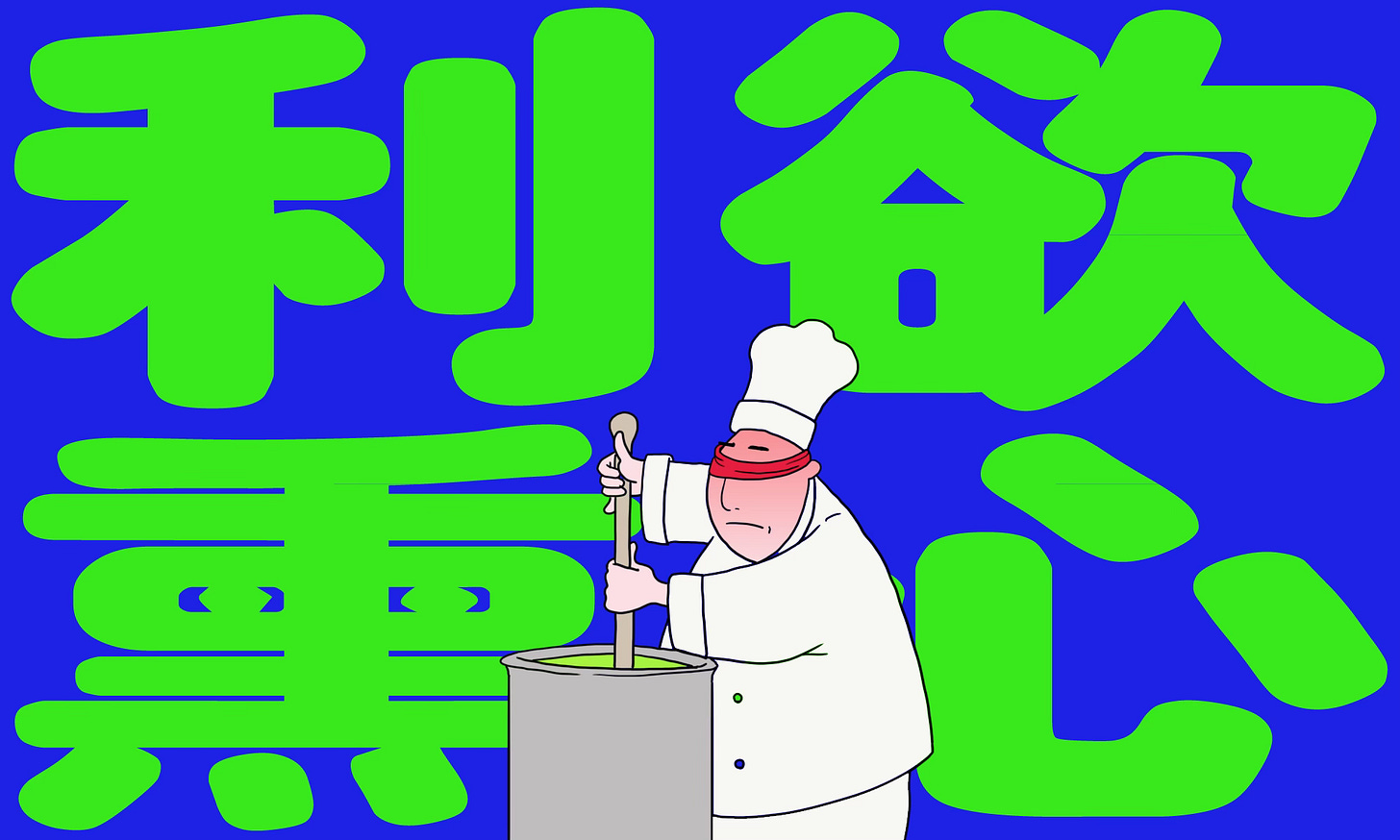"Blinded by greed" — Phrase of the Week
An expensive private school prioritizes profits over student well-being and food safety concerns

Our phrase of the week is: "blinded by greed" (利欲熏心 lì yù xūn xīn).
Context
A food safety scandal erupted at a private school in Kunming earlier in October.
Parents of students at Changfeng Middle School (长丰中学) discovered that their children had been suffering from frequent stomach issues since the start of the term.
Initially these symptoms were dismissed as a seasonal stomach bug.
But one concerned parent decided to investigate the school kitchen and found rotting, foul-smelling pork, ready to be cooked for the students. The parent then shared images of the spoiled meat in a group chat with other parents, demanding an explanation from the teachers who were also in the group.
The scandal quickly spread online and became a national news story. State media reported that local authorities launched an investigation on October 16, with preliminary findings announced the following day.
The investigation revealed that the meat had spoiled due to improper handling, stored in plastic bags for nearly four hours and then left at room temperature for over five hours without proper cold chain transportation or refrigeration.
In addition, the company responsible for supplying the meat and managing the canteen lacked the necessary qualifications to provide catering services.
This revelation left parents questioning why a school that charges 26,000 RMB ($3,600) in annual tuition fees, along with an additional 14 RMB ($2) per meal, had awarded the contract to such a company, and how the school could charge such high fees and still fail to provide healthy and safe meals for the students.
As one parent aptly put it:
“The school only wants to collect tuition fees but doesn’t want to take responsibility, so what is the point of parents sending their children here?
In this world, what stinks is never the rotten meat, but the rotten heart blinded by greed.”
学校只想收学费不想承担责任,那家长把孩子送到这里的意义是什么?这世道,臭的从来不是肉,而是“利欲熏心”。
Xuéxiào zhǐxiǎng shōu xuéfèi bùxiǎng chéngdān zérèn, nà jiāzhǎng bǎ háizi sòng dào zhèlǐ de yìyì shì shénme? Zhè shìdào, chòu de cónglái búshì ròu, ér shì "lì yù xūn xīn."
And with that, we have our Sinica Phrase of the Week.
What it means
”Blinded by greed" is a four-character idiom, which directly translates as "profit" (利 (lì), " desire" (欲 yù), "to pollute" (熏 xūn), "heart" (心 xīn).
This idiom is over 1,000 years old, first appearing in a poem by Huáng Tíngjiān 黄庭坚, a prominent Chinese poet, calligrapher, and scholar during the Song Dynasty (960 to 1279).
Alive from 1045 to 1105, Huang is known for his innovative contributions to the Ci (词 cí) poetry form, characterized by its emotional depth and musical quality. He was also a key figure in literati painting (文人画 wénrén huà), which emphasizes the importance of personal expression and cultural refinement.
Born in Jiangxi, Huang is also the founder of the Jiangxi school of poetry (江西诗派 jiāngxī shīpài), which is the first school of poetry and prose with a formal name in Chinese literary history, and was a contemporary and friend of Song dynasty poet, Sū Shì 苏轼, who has also featured in Phrase of the Week.
Huang's poem, Farewell to Li Ciweng (赠别李次翁 zèngbié Lǐ Cìwēng), written in around 1070 AD, is the source of the idiom, which is found in the first line:
If you are blinded by greed, you will be at the mercy of others.
利欲熏心,随人翕张。
Lì yù xūn xīn, suí rén xī zhāng.
In modern Chinese, the phrase "blinded by greed" conveys the idea of being overwhelmed or corrupted by the desire for profit and personal gain, suggesting that such desires can cloud judgment and morality.
And that's what upset parents at the Changfeng School in Kunming, where the owners were more concerned about maximizing profits, rather than ensuring the safety of students.
Andrew Methven is the author of RealTime Mandarin, a resource to help you learn contemporary Chinese in context, and stay on top of the latest language trends in China.
Read more about how this story is being discussed in the Chinese media in this week’s RealTime Mandarin.
Bonus Phrase: "What year are we living in?", the first line from a poem by Su Shi, which was one reaction to a cosplayer in Suzhou wearing a Japanese outfit being arrested for "provoking trouble."




